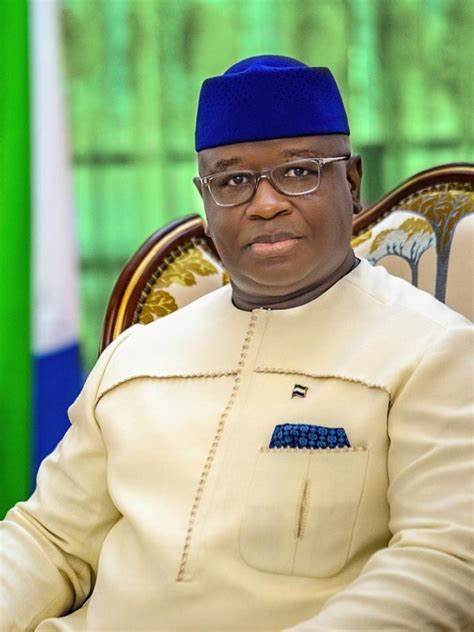Welcome to the Official Website of the Sierra Leone High Commission Nigeria
The Sierra Leone High Commission was established to strengthen Sierra Leone bilateral relationship with the Federal Government of Nigeria and six other accredited nations like the Democratic Republic of Congo, Equatorial Guinea, Niger, Benin, Cameroun, Angola and the Central Republic of Congo. Since its establishment, the Embassy has been a conduit of development opportunities for the West Africa Nation of Sierra Leone.
High Commissioner Dr. Julius Sandy Arrives in Nigeria to Assume Duties.
High Commissioner Rupert Davies Bids Farewell to ECOWAS President.
- Official Name:Republic of Sierra Leone
- Capitol:Freetown
- Population:6,232,000
- Geographic Region: Africa,Western Africa
- Geographic Size (km sq):71,740
- Year of UN Membership:1961
- Year of Present State Formation:1961
- Languages:English
Sierra Leone is well known for its vast endowment in minerals which include diamonds, rutile, bauxite, gold, iron ore, limonite, platinum, chromite, coltan, tantalite, columbite and zircon, as well as promising petroleum potentialAccordion Content
The British set up a trading post near present-day Freetown in the 17th century. Originally the trade involved timber and ivory, but later it expanded into slaves. Following the American Revolution, a colony was established in 1787 and Sierra Leone became a destination for resettling black loyalists who had originally been resettled in Nova Scotia. After the abolition of the slave trade in 1807, British crews delivered thousands of Africans liberated from illegal slave ships to Sierra Leone, particularly Freetown. The colony gradually expanded inland during the course of the 19th century; independence was attained in 1961. Democracy is slowly being reestablished after the civil war (1991-2002) that resulted in tens of thousands of deaths and the displacement of more than 2 million people (about one third of the population). The military, which took over full responsibility for security following the departure of UN peacekeepers at the end of 2005, has developed as a guarantor of the country’s stability; the armed forces remained on the sideline during the 2007 and 2012 national elections. In March 2014, the closure of the UN Integrated Peacebuilding Office in Sierra Leone marked the end of more than 15 years of peacekeeping and political operations in Sierra Leone. The government’s stated priorities include furthering development – including recovering from the Ebola epidemic – creating jobs, and stamping out endemic corruption.Sierra Leone is a member state of the Commonwealth of Nations.
There are at least 17 ethnic groups in the country. These groups have been divided into three language categories – Mande, Mel and Others. The Mende, Vai/ Gallinas, Kono, Loko, Koranko, Soso, Yalunka and Mandingo belong to the Mande. The Temne, Bullum/ Sherbro, Kissi, Gola, and Krim form part of the Mel group. The Others are Limba, Fula, Krio and Kru. The two largest communities are the Mende and Temne, each accounting for about 31 percent of the population.

His Excellence The President of Sierra Leone
Sierra Leone High Commission Nigeria TV
Watch Videos of activities in and around the Embassy
Sierra Leone High Commission Nigeria News
Get the latest update in and around the Sierra Leone High Commission Nigeria
SIERRA DIPLOMATIC EXPRESS PUBLICATIONS











